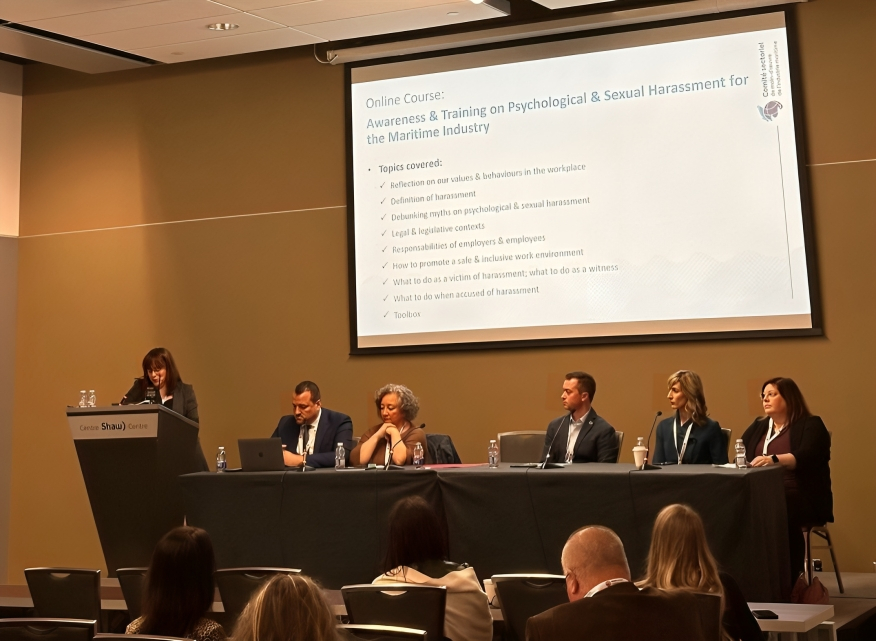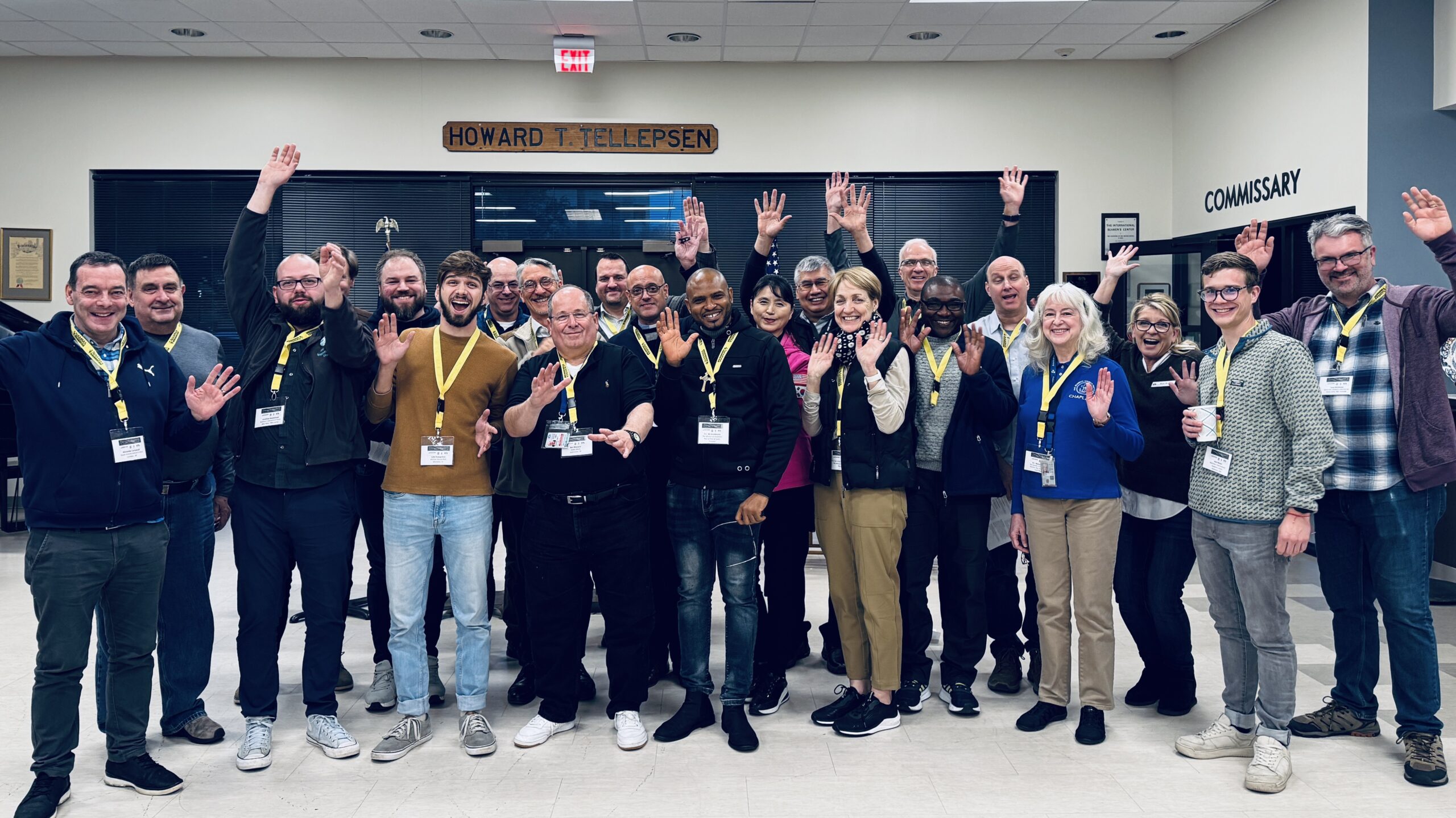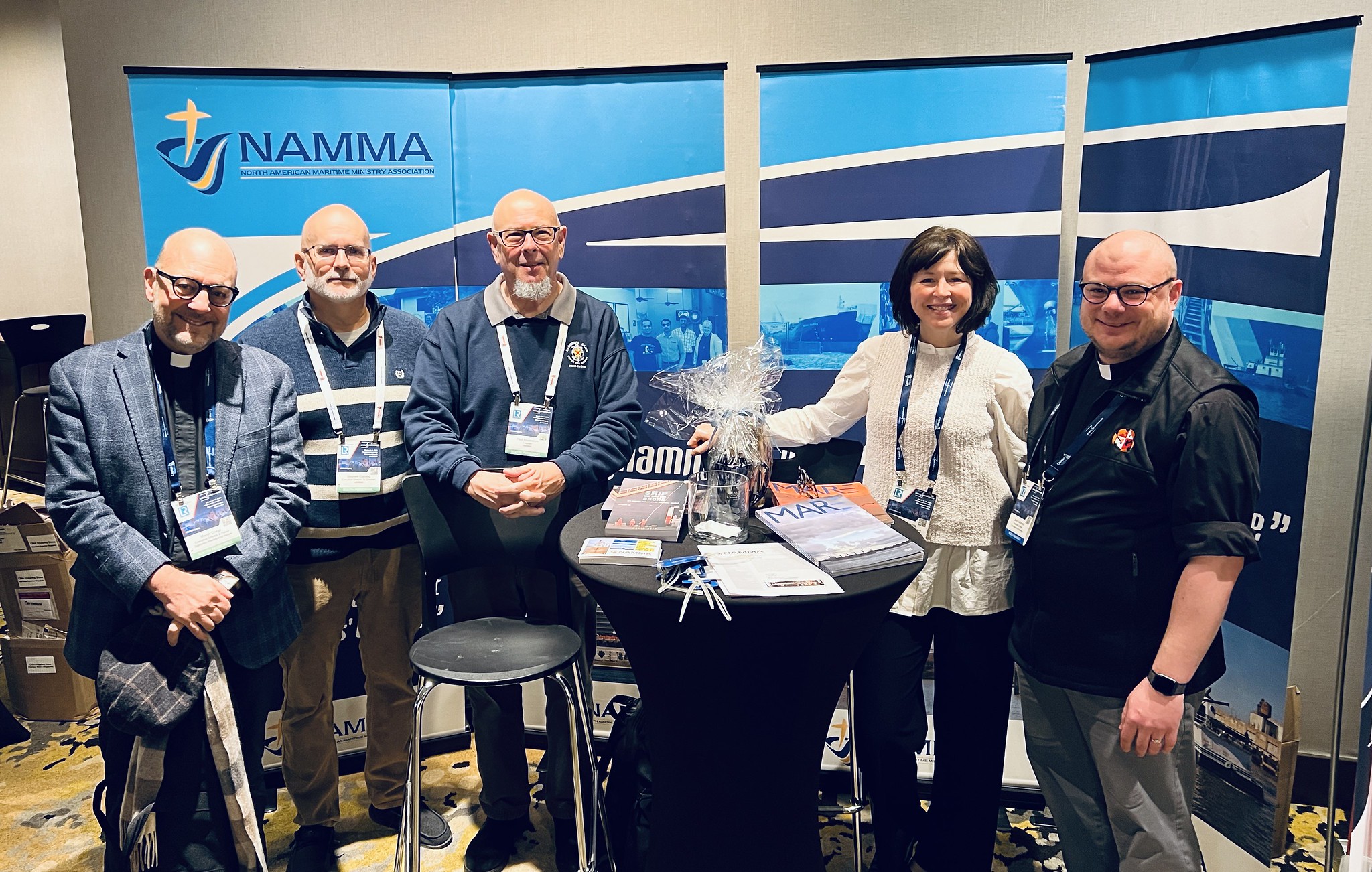On October 2, 2024, at the Shaw Centre in Ottawa, The Canadian Marine Careers Foundation hosted the “Imagine Marine” conference, featuring a panel on “Workplace Wellness.” This discussion, moderated by Dr. Jason Zuidema, Executive Director of the North American Maritime Ministry Association (NAMMA) and co-vice chair of the Canadian National Seafarers’ Welfare Board, brought to light key insights on wellness, psychological safety, and mental health within the marine industry. With panelists from various sectors, the session underscored the importance of workplace wellness as a means to enhance the recruitment and retention of seafarers, a critical issue given the sector’s current labor shortages in Canada.
Dana Tremblay, Director of People Recruitment and Total Rewards at B.C. Ferries, opened the discussion by emphasizing how wellness has become a core part of their operations. Tremblay shared, “In the ferry industry, it’s about how we help the people.” She highlighted the ‘SailSafe’ initiative at B.C. Ferries, which arose from a tragic vessel sinking incident and has evolved into a program that engages employees at all levels to ensure consistent safety practices across the organization. The strength of ‘SailSafe’ lies in its inclusivity, as Tremblay noted: “Through these meetings, we’ve had a lot of really great initiatives developed from the employee level up.” A simple yet effective aspect of the program is the ‘alert process,’ which allows employees to report safety concerns that must be addressed before being cleared. This initiative not only promotes safety but empowers the workforce, giving them a direct role in creating a safe work environment.
Manou Bernard, General Director of the Comité sectoriel de main-d’oeuvre de l’industrie maritime, offered a deeply personal perspective on the challenges faced by women in the maritime industry. With over 20 years of experience in maritime, Bernard shared a story of facing harassment and gender bias during her time at sea, a stark reminder of the difficulties women often encounter in male-dominated maritime roles. Reflecting on her journey, Bernard stated, “I was alone on my own, the only female on board, no communication with the outside world. I just wanted to learn how to do my job.” Her story underscored the need for more robust support and training for women and underrepresented groups in maritime roles. To address these issues, the Comité sectoriel has developed an online training program focused on psychological and sexual harassment awareness, aiming to demystify harassment, define responsibilities, and present real-life maritime scenarios. Bernard stressed the significance of this initiative: “Everybody on board and on shore must feel concerned.”
Chris Given, Secretary Treasurer of the Seafarers’ International Union of Canada and a member of the ITF Maritime Safety Committee, provided a broader industry perspective, focusing on the mental health challenges faced by seafarers. Drawing from a study conducted by his own union, Given shared that 33% of Canadian seafarers surveyed had experienced harassment in the previous four years, and 46% had faced it at some point in their career, with these numbers being significantly higher for women seafarers—58% reported harassment in the past four years, and 69% had experienced it at some point in their career. Furthermore, 63% of those who had been harassed indicated that the experience led to increased depression, anxiety, or mental health strain. Given emphasized that addressing issues of harassment and bullying, along with enhancing mental health support, is key to improving the recruitment and retention of a more diverse and satisfied workforce.
Lastly, the session concluded with insights from Patti Merrigan, Vice-President of Human Resources at Marine Atlantic, co-presented with Captain Heidi Thomas, Master at Marine Atlantic. Merrigan discussed the organization’s efforts to enhance psychological health and safety, focusing on practical changes to foster a healthier work culture. She shared, “Our program was developed with a three-year plan, and we developed an advisory committee that has representation from across the organization. They have identified objectives for us to work on over the period of that three years, all focused on trying to address some of the major issues that were and still are affecting our employees.” Merrigan highlighted their initiatives around mental well-being, quality of life on shore and on vessels, and improved communication and connectivity as key to supporting their workforce.
Captain Heidi Thomas followed by discussing the introduction of the new vessel, Ala’suinu, which was designed with crew wellness in mind. The vessel boasts enhanced habitability, including accommodations with natural light, improved noise control, and better connectivity. “Modern crews expect a high level of connectivity, and it’s critical to their well-being,” Thomas explained, outlining how the vessel’s design supports both the physical and psychological needs of the crew.
The panel on “Workplace Wellness” was a wide-ranging discussion that brought together diverse perspectives on the mental health and safety of seafarers, highlighting the collective commitment of the maritime industry to support its workforce. A heartfelt thanks goes to Julia Fields and the organizing team for inviting such great panelists and for putting together an impressive conference. The Imagine Marine conference provides a platform for these critical conversations and saw a wide spectrum of stakeholders from the Canadian maritime community.





